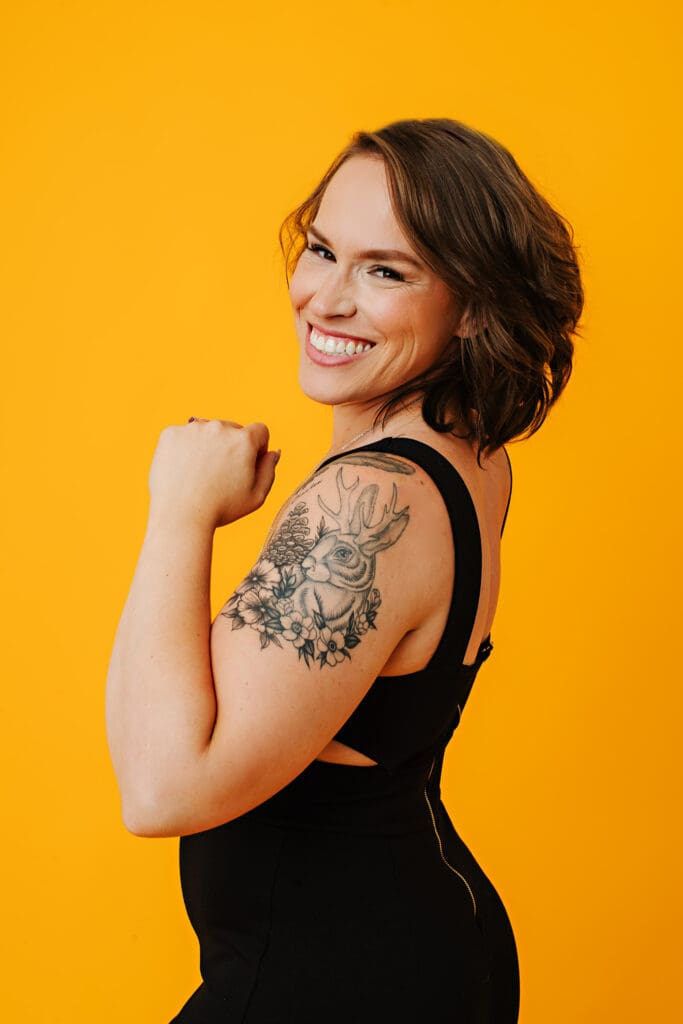A guest post by Beth Marchant
At some point in life, we all ask ourselves, “What’s the worst that could happen?” But for a young woman diagnosed with breast cancer, the answer is different. The worst has happened. Our bodies have been cut open, poisoned, radiated, and forever changed. Our minds have endured the excruciating waiting periods, the anxiety-ridden scans, the loss of control over one’s own future. We’re thrust into premature menopause. After surviving all that, suddenly, the risks that once seemed daunting—career changes, new relationships, speaking out—feel trivial.
A young woman diagnosed with breast cancer is left with not only physical scars, but deep psychological ones. PTSD in survivors is well-documented, affecting an estimated 20% of women after diagnosis, often accompanied by depression and anxiety (National Cancer Institute). But an often-overlooked side-effect of this trauma is a shift toward increased risk-taking behavior—a shift that, if harnessed correctly, can become an unexpected tool for recovery.
How a Breast Cancer Diagnosis Changes Your Relationship with Risk
When I was first diagnosed as a young woman with breast cancer at just 32 years of age, I didn’t think about whether or not I would excel at my job—I just kept going, overly confident in my capabilities and happy with just being comfortable. Even making major life changes, like choosing to have an aesthetic flat closure (AFC) instead of another breast reconstruction attempt, became less about fear and more about reclaiming control. The risks that once might have paralyzed me—failing, looking foolish, losing people—no longer seemed intimidating.
This shift in perspective isn’t just anecdotal. Research shows that post-traumatic growth can follow major life challenges, pushing survivors to embrace life with a newfound boldness (PMC). Some young women diagnosed with breast cancer find themselves travelling solo, taking up adrenaline-fueled hobbies, or quitting jobs that make them miserable. Other young women diagnosed with breast cancer, like me, use their experiences to push past emotional barriers—whether in relationships, careers, or simply the way they carry themselves in the world.
From Recklessness to Rebuilding
Not all risk-taking is positive, though. After treatment, it’s common to lean into recklessness—harder partying, impulsive decisions, saying “yes” to everything out of a fear of missing out. For some, this manifests as destructive behavior; for others, it’s about testing the limits of what this “new normal” really means.
The key is channelling that risk-taking into something constructive. Instead of burning down everything familiar, I started building a life that felt more authentically mine. I embraced the idea that my body and my past don’t define my worth, which made taking the leap into love again—despite my trauma—one of the best risks I ever took. The willingness to be vulnerable, to open myself up to possibility, became a way of reclaiming power from both cancer and past abuse.
Risk-Taking as a Form of Healing for a Young Woman Diagnosed with Breast Cancer
There’s something freeing about knowing that, after everything, you are still here. You made it. And that freedom allows a young woman diagnosed with breast cancer to embrace post traumatic growth and look at life differently:
- Regaining Control – After months or years of feeling powerless, making bold decisions can be an act of defiance against everything cancer took away.
- Adrenaline & Endorphins – New challenges can push the brain to release feel-good chemicals, helping to combat PTSD symptoms.
- Redefining Identity – Cancer changes you. Risk-taking can help survivors build a new, stronger version of themselves.
- Facing Fear Head-On – When you’ve already faced mortality, the everyday fears—rejection, failure, embarrassment—become much smaller.
Living Boldly, On Your Terms
Taking risks after cancer isn’t about proving anything to anyone. It’s about choosing the life you want, without the weight of fear dictating your decisions. It’s about recognizing that while you didn’t get a choice in having cancer, you do get a choice in how you live beyond it.
For a young woman diagnosed with breast cancer and navigating PTSD, embracing risk—whether big or small—can be a crucial part of healing. It’s not about being reckless for the sake of it. It’s about taking control of your story and saying, “I’m still here, and I’m going to make the most of it.”
Ellyn’s intro to Beth’s story here.
About the author

Beth Marchant lives in Cambridge, Ontario, Canada with her husband and 3 children. A young woman diagnosed at 32 with stage 3 metaplastic breast cancer, she is now cancer-free and living her best life after finishing her cancer journey with her aesthetic flat closure. She works hard to be an advocate for young women throughout their breast cancer journey and has participated in several national awareness campaigns and was featured on We Are Flawed, a show about self-love with Spencer Barbosa. As a marketing manager within the construction industry, she is especially passionate about encouraging women within the trades and male-dominated industries. She typically prefers keeping herself active and creative and is a huge fan of mobility training and strength training, especially since pairing it with physio for overall health.
